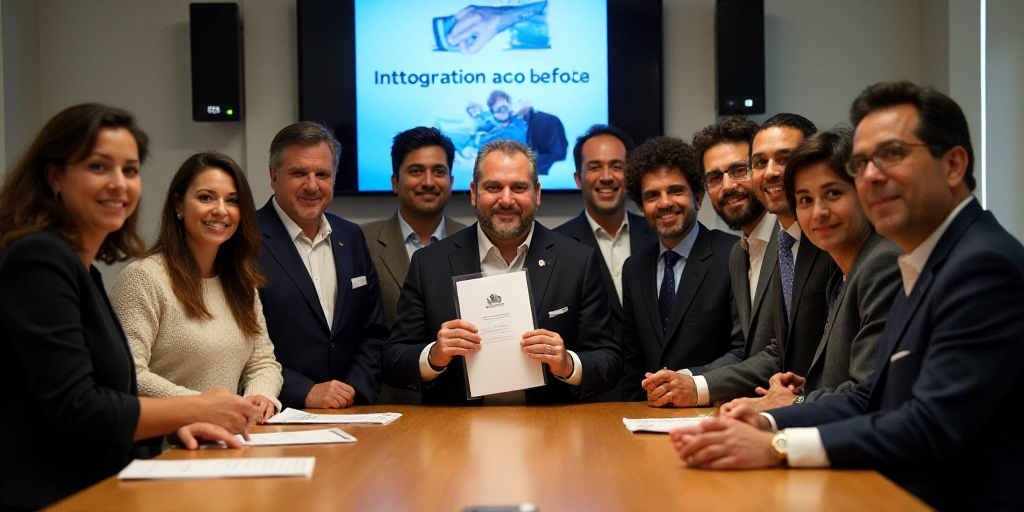Background and Relevance
As the countdown to the 2026 FIFA World Cup begins, with Mexico City set to host some of the matches, local authorities and international organizations have come together to ensure fair labor practices for all workers involved in the event. This collaboration aims to protect and uphold workers’ rights, ensuring a successful tournament that benefits everyone.
Key Players and Organizations
- Secretaría de Trabajo y Fomento al Empleo de la Ciudad de México (STyFE): The labor and employment promotion secretariat of Mexico City, responsible for implementing policies that foster job growth and protect workers’ rights within the city.
- Secretaría de Turismo de la Ciudad de México (SECTUR): The tourism secretariat of Mexico City, which collaborates with STyFE to ensure that tourism-related events, like the World Cup, adhere to labor standards.
- Federación Internacional de Trabajadores del Transporte (ITF): An international organization representing transport workers, advocating for their rights and working to establish global labor standards.
Agenda of Work Signed
On [Insert Date], the STyFE, SECTUR, and ITF-CCN (the Committee of National Coordination of ITF) signed a “Joint Work Agenda.” This agreement outlines the responsibilities and actions that each organization will take to protect workers’ rights during the 2026 FIFA World Cup in Mexico City.
Key Points of the Agenda
- Promoting Fair Wages: Ensuring that all workers receive fair compensation for their efforts, taking into account local living costs and industry standards.
- Safe Working Conditions: Implementing and enforcing safety protocols to protect workers from potential hazards during construction, preparation, and event execution phases.
- No Discrimination: Upholding anti-discrimination policies and ensuring equal opportunities for all workers, regardless of gender, race, or ethnicity.
- Worker Training and Development: Providing training programs to enhance workers’ skills and promote career growth within the tourism and event management sectors.
- Monitoring and Enforcement: Establishing a joint committee to monitor compliance with the agreed-upon labor standards and take corrective actions when necessary.
Impact on Workers and the Community
This collaboration between Mexico City officials and the ITF will have a significant impact on workers involved in the 2026 FIFA World Cup. By prioritizing fair labor practices, the initiative aims to:
- Improve workers’ livelihoods: Ensuring fair wages and safe working conditions will directly benefit workers and their families, contributing to the overall economic well-being of the community.
- Promote diversity and inclusion: Upholding anti-discrimination policies will create a more inclusive work environment, fostering respect and equality among all workers.
- Enhance skills and career prospects: Offering training programs will empower workers with new skills, opening doors for better job opportunities and long-term career growth.
- Strengthen the local economy: By ensuring fair labor practices, the initiative will contribute to a more stable and prosperous local economy, benefiting both workers and businesses in Mexico City.
Key Questions and Answers
- Who signed the work agenda? The Secretaría de Trabajo y Fomento al Empleo de la Ciudad de México (STyFE), the Secretaría de Turismo de la Ciudad de México (SECTUR), and the Federación Internacional de Trabajadores del Transporte (ITF) through its Committee of National Coordination (ITF-CCN).
- What is the purpose of this agreement? To protect and uphold workers’ rights during the 2026 FIFA World Cup in Mexico City, ensuring fair wages, safe working conditions, non-discrimination, worker training, and effective monitoring.
- How will this agreement benefit workers and the community? By prioritizing fair labor practices, the initiative aims to improve workers’ livelihoods, promote diversity and inclusion, enhance skills and career prospects, and strengthen the local economy.






